4007 The Good Intentions Of Your Inner Critic
Podcast: Play in new window | Download (Duration: 46:19 — 42.8MB)
Subscribe: Apple Podcasts | Spotify | Email | RSS | More
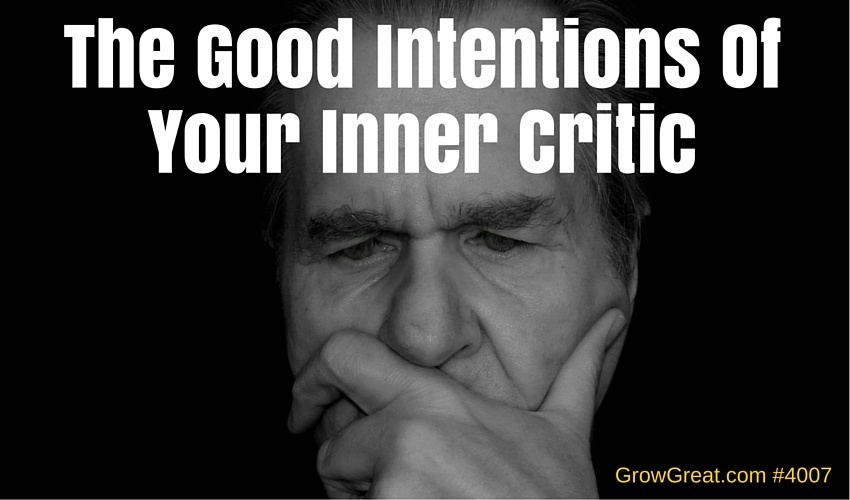
Sometimes people need professional therapy. Our pain sometimes demands it. Our ability or capacity to process our pain often needs some shoring up. I’m not a professional therapist. I’m just a business guy with a lifetime of striving toward higher self-awareness. Spend your lifetime studying people – including yourself – and you learn a few things. Mostly, I’ve learned there’s so much I just don’t know. Today’s show is not intended to serve in place of a mental health professional. Some of the most successful people find they need help because success brings about its own pain and pressure. My best advice is, take care of yourself.
________________________________________________________________________________
He was very small. Probably 4 years old or so. I don’t remember the specific circumstance, but I remember many conversations with him about the voice inside his head. I was probably 27 years old or so. He was my son, our first born. Patience, as with most 4-year-olds, wasn’t yet in his arsenal. My task was to help him discover it. Mostly, I was intent on helping him learn to develop resilience. My wife and I quickly realized that if he didn’t excel immediately, he grew frustrated and angry. His temper was mostly ignited at his own failure. We knew he was innately competitive.
I’m on one knee, bent down to look him in the face. The topic is the invisible little man who lives in his head and tells him, “You’ll never be able to do this. You’re an idiot for even trying. Look at you, you can’t even do it right the first time.” I worked diligently to help him understand that we all have an invisible little person living in our head who tells us lies, but we also have another little person telling us the truth – encouraging us, telling us we can do it, and urging us to silence the critic.
My son wasn’t getting professional help from me. I was a rank amateur with enough self-awareness and communication skills to know I didn’t want my little boy to grow up feeling defeated before he even began. Hitting a ball with a bat. Catching a ball. Anything like that frustrated him if he couldn’t master it immediately. Learning wasn’t acceptable. He was born with some wiring that compelled him to be instantly good, or worthless at doing something. To my wife and I, it went beyond the scope of childish expectation. Through the years we’d learn it was part of who he was. Our job was to equip him as best we could with the tenacity to understand it, manage it and harness it for his own good.

Today, he’s 35 and we couldn’t be prouder. Thankfully, we didn’t screw him up too badly. 😉 Now it’s his turn to avoid screwing up his own kids.
The other day I was remembering some of those down-on-one-knee talks with him, wondering where I got my stories about the “little man living in your head telling you all these negative things.” If I learned about it, I don’t remember. What I do remember is always knowing I had such a little man living in my head. He’s been there for as long as I can remember.
It’s likely where I first got my fondness for what was once called “self help” books. I’d read books, listen to audio tapes and consume quite a lot of that material, especially in my 20’s. It was interesting to me. I was mostly interested in the deeper stuff that had some scientific basis. I wasn’t so smitten with the rah-rah-sis-boom-bah stuff. That’s the stuff that jumped to the best seller list and I read too many of those, but mostly I found those trite and cheesy. I wanted substance. I wanted understanding.
In college psychology classes fascinated me. My library still contains a variety of books aimed at helping us understand ourselves and why we do what we do. Or why we fail to do other things we should. I wasn’t smart enough to pursue science, but I was highly interested. As a business guy – even as a hi-fi salesman during college – studying people was always the underlying reason for it I suppose. Finding out what people wanted and why. Listening to them tell their stories. Watching their faces as they talked of a favorite record, or band. It was all pretty interesting and I suppose in some small way I figured that if I could develop skills to better understand people, then maybe I could better understand myself. Maybe that was the point all along.
Understand Yourself Better
Doesn’t everybody have an inner critic? I suppose so. I can’t imagine somebody not having one. Or more than one.
I’ve already admitted my personal fascination with my own (and my children’s) inner critic and self-esteem. My children we born in the early 80’s and may well be the last kids to be raised by old-school parents who didn’t subscribe to participation trophies. We wanted our son and daughter to be independent, stand up for what they believed in, do the right thing no matter what and figure out what occupation would best serve them and their own families. They were experience driven. Much more so than my baby boomer generation ever was. We were materialistic and chased financial success. Our parents were part of what Tom Brokaw called “the greatest generation.” Our folks worked hard and we learned our work ethic from them. But was gave up quite a lot in the process. We worked a lot of hours, grinding away to climb the ladder and find success, which was mostly based on how much money we made. Thankfully, our children found a better way – a more balanced life.
Understanding ourselves often draws us back to our childhood. We’re all a product of our upbringing. My wife and I knew we were packing bags that our children would carry with them the rest of their lives. That’s how it goes. I was committed to making some of those bags I gave my kids as profitable and productive as possible. Time will judge whether I was able to do it as well as I’d hoped.
It all boiled down to helping them better understand themselves. Of course, first I had to better understand myself. That was always the hard part. Today, that’s the hard part for them now that they’re parents trying to pass on whatever lessons they’ve learned.
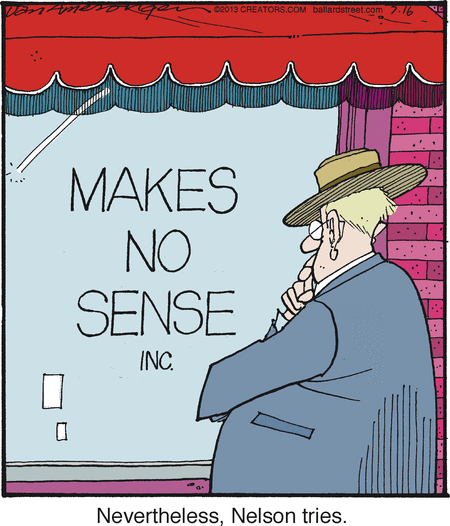 I keep reading, observing, writing and doing my best to pay attention. And of course, as always, trying to connect the dots and make sense of it all.
I keep reading, observing, writing and doing my best to pay attention. And of course, as always, trying to connect the dots and make sense of it all.
It’s a nice, plush quiet office. The CEO owns the business. He started the company 27 years ago. Slogged his way to profitability and things began to take off.
Around year 7 he started getting newfound and much needed traction. Business was good, but the growth was stressful. He was discovering new problems he’d never faced before. There were people problems. Capital always seemed too short. There were inventory issues. Systems were being taxed at every point. He was afraid. The growth has revealed all the things he knew were true – he wasn’t prepared.
So he did what most do. He dove in trying to figure it out along the way. Desperation is how he characterizes those years. He was desperate to figure it out so he just took action. Mostly, he admits, he got it wrong, but he tried to fix it as soon as he could. When he got it right, it paid off handsomely so he just assumed if he could win more than he lost, then everything would be okay.
That didn’t help him sleep at night. It sure didn’t help him build an organization, or develop a high performing team. No sooner had the euphoria of getting traction hit until it gave way to high anxiety. He had never been this afraid. He had employees. Payroll. Suppliers. Financial concerns. He was eating, drinking and staying awake at night fretting about the business.
Here we sit, two decades later. It’s in the middle of the afternoon. He’s troubled. Today, he’s lamenting a few opportunities he’s had to develop a key right-hand person. There was the young man he hired 22 years ago, before the traction took hold. A diligent young man with a high degree of willingness. Rough around the edges sometimes, but plenty of horsepower to work with. He just never took the time to really mentor the young man. Eventually, he left, telling the owner that he needed a new opportunity. The CEO figured he really meant that he wasn’t growing as he wanted — and they both likely understand the fact of it all.
After that, he figures there had been at least two more. He’s got a strong team today, but he can’t seem to get past the lost opportunities to have grown talent that would likely be serving him now in his latter years. Talent that might best help him achieve what he most wants now.
There’s regret on his face as he’s telling me the story. I asked him about himself. He’s telling me about past employees, but he’s not saying a lot about himself. “What’s the issue for you?” I ask. “Me?” he barks back. “It’s my business. It’s all an issue for me,” he retorts. Spoken like most business owners I’ve encountered through my career. I know how he means it, but I also know it can camouflage what’s really bothering him.
I ask him to help me understand how he’s feeling and what he’s thinking. His mood grows increasingly reflective, and pensive. He removes his glasses, rubs his eyes and says softly, “I don’t want to do this anymore.”
It’s a bolt out of the blue. Catches even me off guard and I’m almost always on guard — that is, I’m pretty prepared for most things people tell me. I ask him to talk to me more about that. For the next 20 minutes or so he laments his life, organizationally and personally. He’s trapped by his success. Trapped by his business. Trapped by having to do it all. Trapped by making every big decision.
As the CEO of a mid-sized company with millions of dollars of revenue, just under 100 employees and a staff of about 7 direct reports, he’s surrounded by people. He speaks fondly of most of them, but continues to lament that he’s never fully developed a person capable of replacing him. Somebody who can help him ease into a new role that he longs to achieve – a wise mentor capable of providing historical context, industry know-how and other insightful service to a leadership team capable of soaring higher. Always higher.
“What are you most afraid of?” I ask, knowing it’s the time I can now ask and get an honest answer. He looks at me. Puts his glasses back on. Looks at some papers on his desk. Then looks up and peers at me with his eyes slightly squinted as if he’s got a headache. “Being alone,” he answers. “But that ship sailed. I am alone.”
His marriage ended shortly after his year of traction. One daughter is now off to college somewhere up north. He has confessed that his wife and mistress are one and the same – his business. He’s got many friends. Well, people with whom he can socialize. His calendar is full of activities. At work. At home. He’s surrounded by people. But mostly, he’s alone.
All the trappings of success are just that – trappings. He’s said so. This is no longer working for him. He’s a miserable man. Successful by all accounts and miserable.
Part of providing the opportunity to shell it down and be transparent is giving leaders the release they’ve longed to have. He seems to be breathing. I mean really catching a breath. Not just physically, but emotionally. I remind him that I’m not a therapist and my work isn’t therapy, but it is therapeutic. “Boy, don’t I know it,” he says.
He’s in his 60’s. He’s not the 4-year-old little boy I talked to when I was 27. But there’s still a little person inside him telling him things. Surrounded by talent and expertise in his business, he’s mostly listening to some unnamed little person living in his head. This trusted advisor has no name, no credentials and only one mission. To nag him into misery. Well, that seems to be the impact.
Over time it’s clear to him that he’s refusing to get too close to people. He wants to, but he’s afraid. Afraid it won’t work out. Like his marriage. Or those early employees who abandoned him. That’s his word: abandoned. No matter that they were willing, hard working and devoted. No matter that they likely weren’t feeling valued by him. He sees it the way he sees it. Clear or not, it’s his perspective.
Talk turns to our inner critic. That voice that sometimes wants to serve us, but has the opposite effect.
He concludes his inner critic is likely trying to protect him from being hurt, but those good intentions aren’t working. Instead, they’re causing him to repel against the very things he needs to do to get out of under this life he no longer wants. I’m here to help him with his business and professional life. But I care about his entire life and urge him to consider finding a professional capable of serving him in ways I can’t. He finds a professional and just after one session tells me what a gift it is to have two people serving him – me and a mental health professional, a therapist. I’m humbled.
Age Doesn’t Matter – Intentions Don’t Either
Whether we’re old or young, our inner critic likely never goes away. I’ve concluded maybe the best we can do is to understand it.
I’ve learned that often times my own inner critic is seeking my best. Or he thinks he is. “Don’t try that, it won’t work. You’ll only embarrass yourself.” Good little voice, trying to protect me from embarrassment.
Freedom From Your Inner Critic is a book written by Jay Earley and Bonnie Weiss. Part of what the authors point out is that our inner critic has old ideas about us. We listen to these antiquated images of who we may have once been. Our inner critic pushes us to remember an outdated version of ourselves. The problem is, that doesn’t fit our current circumstance. Or our current skills or experience. According to Earley and Weiss, our inner critic then goes to work to protect us, causing us to doubt ourselves. That makes us feel insufficient, often growing more miserable. That’s where our CEO business owner is at.
I encourage you to read and study about this more, but I’ll share with you three things Ms. Weiss points to as ways to tame this inner critic.
Step 1: Separate
That little person living in our head is just one of many. It’s one voice among many. The inner critic isn’t entirely you, but it’s only a part. Weiss says that voice has its own motives and world view. The way to tame it is to distance from it. Make a decision to listen, or not listen.
Sometimes you need to tell the voice to back off. She argues that we all need to find and get in touch with our higher Self (yes, it’s a capital S). Google IFS or internal family systems therapy and you’ll find more. I’m not saying this is the end all, be all. I am saying I’ve found elements of this helpful in better understanding myself and in helping others better understand themselves in the professional dynamics at work.
Like any voice or advice we get, we can choose to listen or not to the inner critic. Yes, it’s hard, but it’s possible. Some people may be able to figure this out with a bit of reading and study. Other people may require or want more structured help.
Step 2: Update
Weiss encourages us to ask our inner critic an important question, “How old do you think I am?” Most often we’ll find out that our inner critic thinks we’re still a small child. It’s as though our inner critic is stuck in time. All the effort expended to protect us is by a small (but loud) voice aimed at protecting a child, not a grown adult with the skills and experience we now possess. The more you’re able to show this part of yourself who and what you really are today, the more likely you’ll be able to update the inner critic into letting go of the dated concerns that little voice expresses to you, trying to protect you.
Step 3: Mentor
Weiss and Earley use a term I’m rather fond of, Inner Champion. That can be your new mentor. You need help in dealing with your inner critic. Weiss finds it helpful to give your Inner Champion some human qualities. She admits her own Inner Champion is part Katherine Hepburn, Margaret Mead and others. The job of the Inner Champion is to give you strength.
The Inner Champion often sounds like the voice of a good mom reminding you of your value and capacity. It encourages you to take reasonable risks so you can get what you most want.
The Inner Champion also has the courage to take a stand against your inner critic, telling it to leave you alone. The Inner Champion is the other voice in your head telling that inner critic that he’s not being helpful.
The value of the Inner Champion is in helping you develop a process or system to achieving what you want. When you lack a process, your Inner Champion helps propel you forward to devise a plan.
And the Inner Champion takes care of the fragile parts of you that are being protected by the inner critic. See, the inner critic is really intending to help you. It just doesn’t always work out that way.
Clarity
I’m a fan. Seeing things clearly doesn’t mean the news is always good. Or that the outcome is what we wanted. It just means we’re seeing it for what it really is. That provides us with an opportunity to make adjustments, fix what ails us and figure out what we’ll do next.
Life is about adjustments. It’s about learning. The CEO was learning some things for the first time in his life. He was putting in the work to avoid going it alone, thinking he had to be strong enough all by himself. Trapped by success, surrounded by people – he was already alone. And that’s what he most feared. When he saw it more clearly he was able to devise a plan he could own. Professional therapy helped. I hope I did, too.
He got some strategy in place, which drove his hopes higher. In time he got some optimism because he could see a positive outcome. Hopelessness gave way to optimism.
I encourage you to seek clarity for yourself. Leaders can get so busy and allow their lives to become more hectic than is profitable. “I’m too busy,” is a steady refrain I hear from every leader. I’m the guy who’ll ask, “Do you think Benjamin Franklin was a bit brilliant? How about Ernest Hemingway?”
Ben Franklin is quoted as having said or written, “Never confuse motion with action.”
Ernest Hemingway is quoted as having said, “Never mistake motion with action.”
Pick your brilliant guy. Their quotes are the same. And they were both right.
Today, right now, do something for yourself. Face that inner critic. Read a book (or four) on it. Confront it and seek professional help if you need it or want it. Some of us are out here ready to help you do the heavy lifting.


How Can You Help The Podcast?
- Subscribe at iTunes | Stitcher
- Leave us a review at iTunes
- Pick your favorite way to support us financially
- Join the conversation at our Facebook group
- Tell your friends. Promote the shows on social media.
4007 The Good Intentions Of Your Inner Critic Read More »




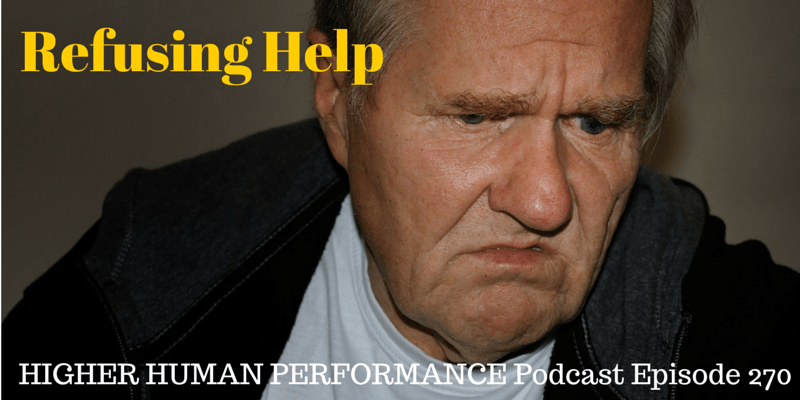

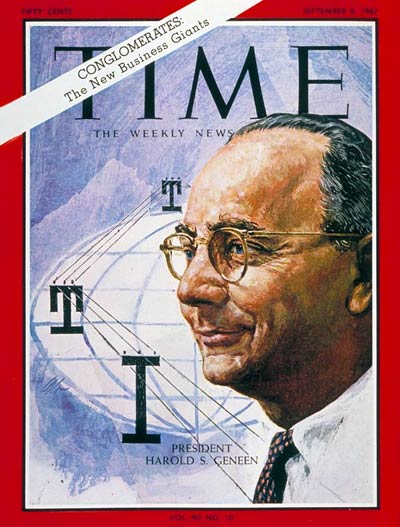
 In 1984 I read a book about somebody I had never heard of. A business titan with a reputation for making senior leaders cry publicly as he questioned them about their numbers in an open forum. He’d made the cover of Time magazine back in 1967, but that preceded my business career so it escaped me. People still think of the hard-nosed CEO as an SOB. This man is often credited with being the father of the tough, SOB executive. I’m not so sure that’s accurate or fair, but I admit I have a favorable bias for him.
In 1984 I read a book about somebody I had never heard of. A business titan with a reputation for making senior leaders cry publicly as he questioned them about their numbers in an open forum. He’d made the cover of Time magazine back in 1967, but that preceded my business career so it escaped me. People still think of the hard-nosed CEO as an SOB. This man is often credited with being the father of the tough, SOB executive. I’m not so sure that’s accurate or fair, but I admit I have a favorable bias for him.

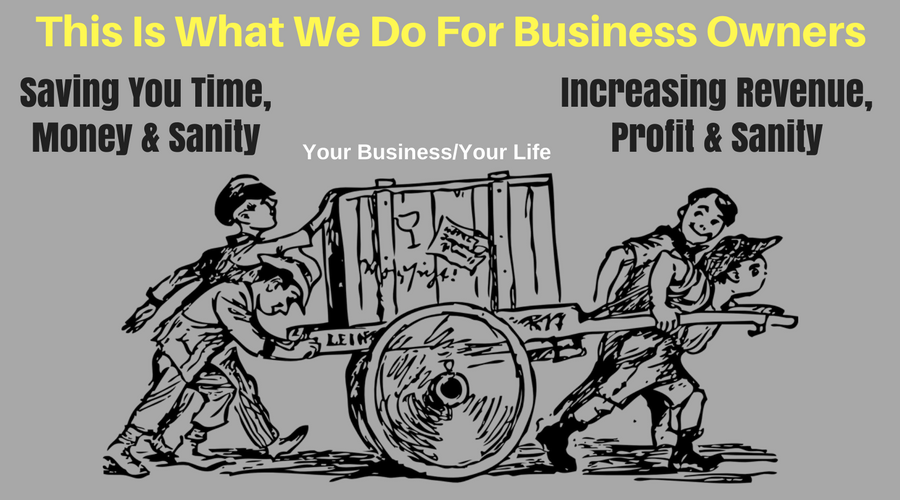
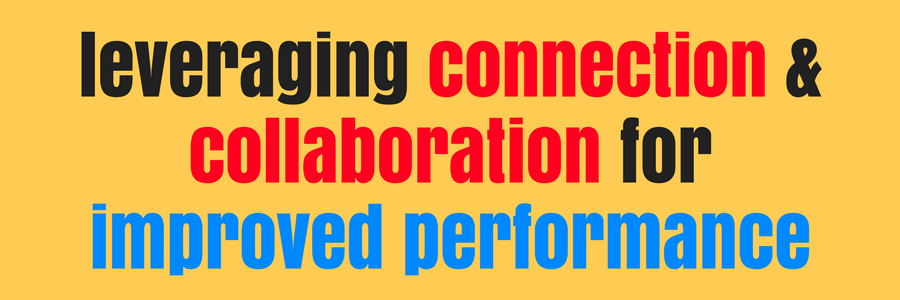

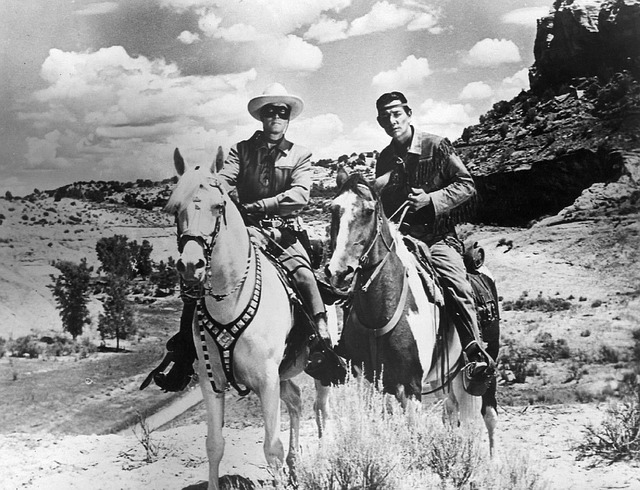
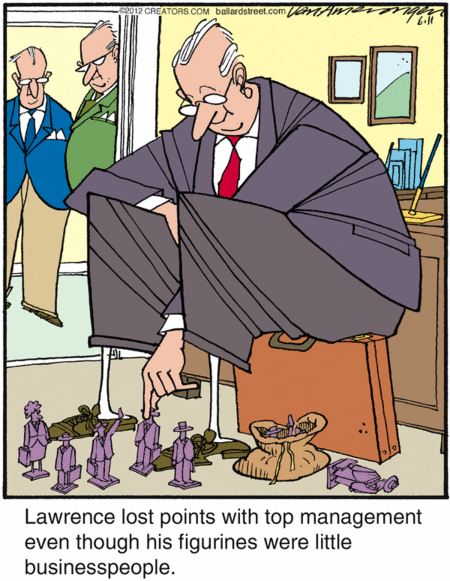 And so it goes. A man with an opportunity to be a dynamite #2 is sooner or later going to be somebody somewhere else. He won’t likely be a #2. Or #3. All for the lack of seeing how his own career might benefit from hoisting up his boss with superior support and service. He just can’t bring himself to be Tonto, or Ed or Mike Campbell.
And so it goes. A man with an opportunity to be a dynamite #2 is sooner or later going to be somebody somewhere else. He won’t likely be a #2. Or #3. All for the lack of seeing how his own career might benefit from hoisting up his boss with superior support and service. He just can’t bring himself to be Tonto, or Ed or Mike Campbell.
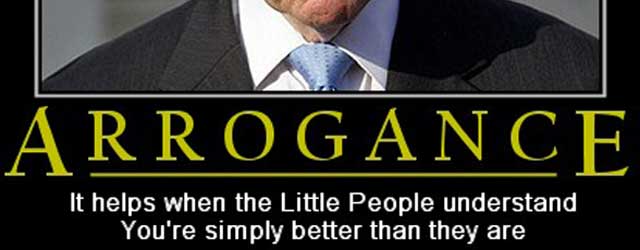



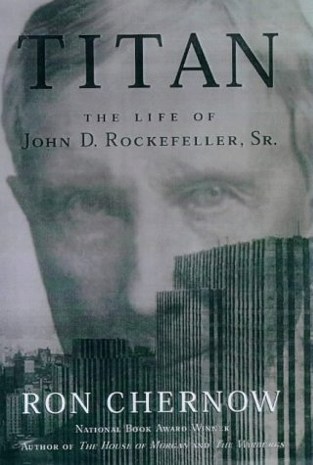 Post Civil War America was built mostly by ruthless men. Men whose business success was fueled by fearlessness, opportunity and an intense desire to best their peers. Putting the other guy out of business was often the primary objective in the early 1900’s. During America’s industrial age capitalism was dominated with men doing their best to gain a monopolistic advantage. From railroads, to steel, to oil and to electricity – early American business success came most to those able to dominate an infrastructure industry.
Post Civil War America was built mostly by ruthless men. Men whose business success was fueled by fearlessness, opportunity and an intense desire to best their peers. Putting the other guy out of business was often the primary objective in the early 1900’s. During America’s industrial age capitalism was dominated with men doing their best to gain a monopolistic advantage. From railroads, to steel, to oil and to electricity – early American business success came most to those able to dominate an infrastructure industry.